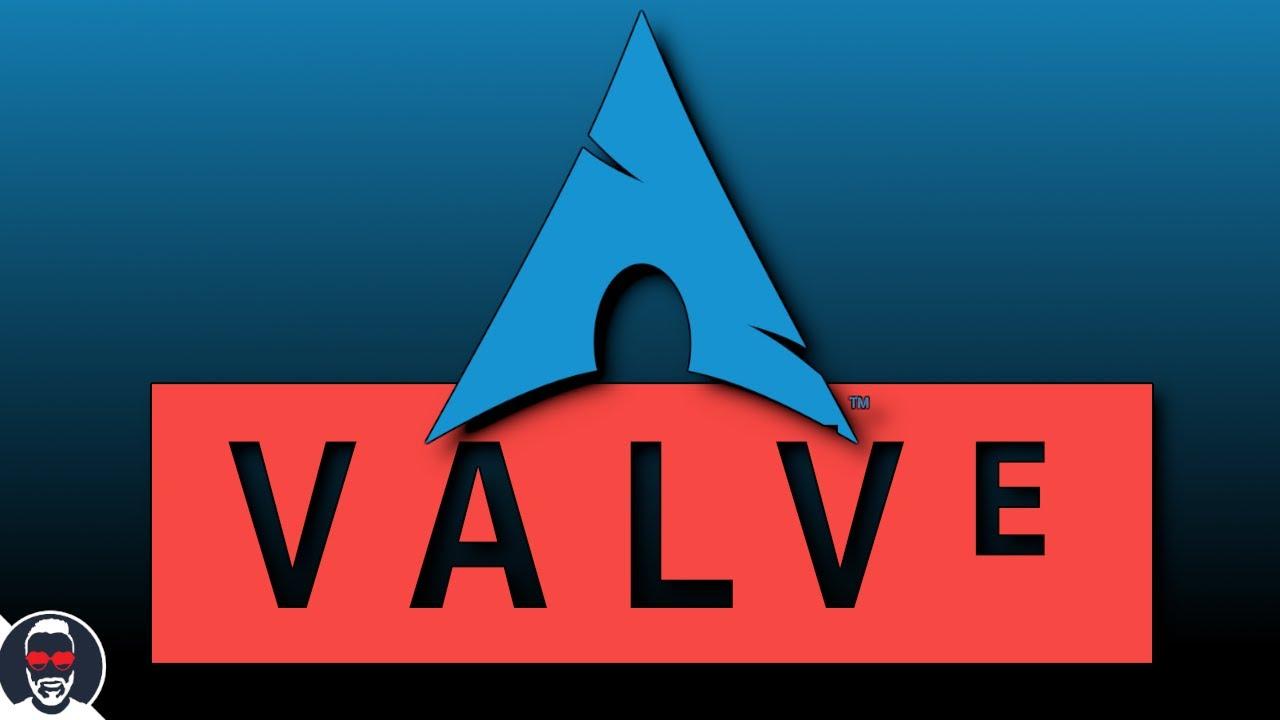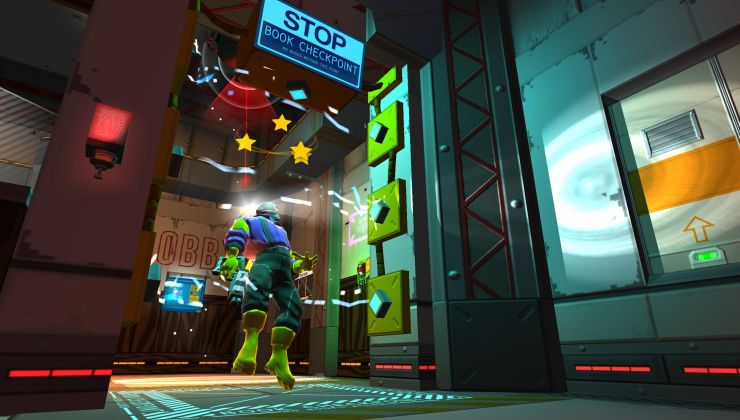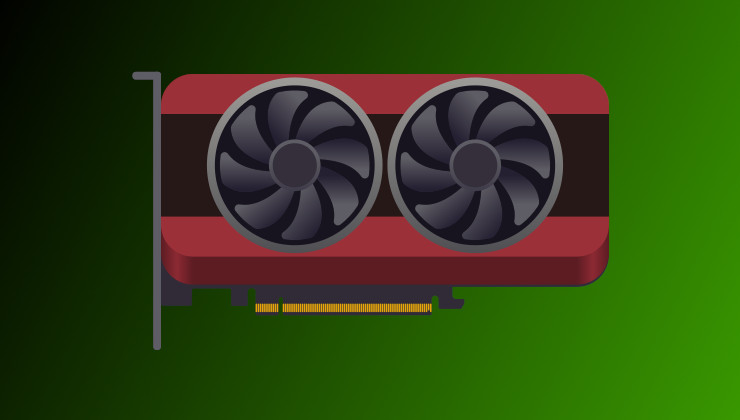Recently we had the big news that Valve (Steam) began a collaboration with Arch Linux, to help fund two very specific parts of the Linux distribution. Now, we have a bit more info on what it means.
After an interview recently from the A1RM4X YouTube channel with an Arch Linux developer, Antiz, they took to Reddit to explain things a little bit further to help people understand what's happening. Here's an excerpt:
Basically, the way packages are currently built / managed still requires a few manual interventions from Package Maintainers (e.g. triggering the build itself and signing the built packages afterwards). As of now, supporting multiple architectures would mean multiplying those manual steps by the number of supported / targeted architectures. With the current number of packages compared to the current number of (volunteers) Package Maintainers maintaining them, Arch is not able to handle the extra amount of effort that it would imply.
A central build service and a central secure signing enclave (the two projects concerned by that Valve "sponsoring") would streamline the overall process by allowing automated build and signing for packages without requiring any manual steps / interventions from Package Maintainers anymore (and it will also allow to increase the security of the process as a side benefit). Only such a streamlined / automated workflow would allow us to start working on supporting multiple architectures without implying to multiply the current amount of required effort.
In other words, those projects are prerequisites to start working on multiple architectures support in a clean & sane way, which is a end goal shared by both Arch and Valve.
So basically, a lot of it is towards supporting multiple architectures. And with the news that Valve are seemingly working on supporting some form of Arm and Android support (likely for a future VR headset), this definitely makes sense. Especially when Valve already use Arch Linux for SteamOS on the Steam Deck, it seems increasingly likely that Valve will use an Arch Linux base for what comes next.
Antiz has also been replying to other comments on Reddit, in one post noting that it is very much their "end goal" for Arch Linux to support multiple architectures.
Check out the full interview on the A1RM4X YouTube channel with the Arch Linux developer Antiz:

Direct Link
And then I guess make it easier for the future when x86 inevitably dies, and there's some new competitor to Arm, this project could support that...?
Are they also talking about Operating Systems as well? Like how both windows and linux run on x86 but a lot of apps / games only release on windows (and then run on linux via proton).
Last edited by R Daneel Olivaw on 3 Oct 2024 at 12:18 pm UTC
so basically they want to make it easier for the developers of App XYZ (or Game ABC) to just push a button for deployment and BAM their app/game is available on x86 or Arm? Is that correct?
No, this is purely about the OS layer. At the moment Arch only supports x86_64, and lacks the resources/motivation to support any other architectures because providing packages for these is a timesink/chore right now. Arch has had vague plans to improve the packaging infrastructure (to make supporting other architectures easier) for a while, but hasn't gotten around to doing so. Valve have basically come along and asked how they can help.
If I had to guess, this is preparation for Steam Deck 2? or perhaps a new SteamOS? Maybe preperation for making SteamOS an OS for anything? Something is happening either way, and with a bit of luck it'll provide that nice easy to use OS we can point all new users to and say "Use this, it works out the box for most things" as opposed to having to say "For nvidia try this distro, for amd try this one, oh and if you need this, try that distro over there, etc.
I think I know what is happening here.
During his 2013 talk at LinuxCon Gabe confessed that his next target for Linux compatibility was hardware compatibility.
I thought the Steam Deck was the final answer to that, but I think he saw opportunity to get more.
You see ARM is a platform that built itself on Linux.
Essentially all ARM compatible is Linux compatible thanks to this.
There're even ARM processors with fully open firmware.
Thanks to Apple, Microsoft suddenly started enabling the option to support ARM through Wine.
Microsoft rules x86(_64), but ARM is deeply integrated in open source software.
I think this madlad is working on ARCH/GNU/LINUX/ARM device and possibly(I can dream) using locally compiled software like Android does it, making CopyLeft ten times as enforcable.
Compatibility would be achieved by providing developers with the tools to compile for a ton hardware at once, porting, Microsoft bribes and emulation(pay attention to the QUEMU project).
I expect a VAC port to Linux/ARM
What I'm not certain about is a VAC port to Windows/ARM. One could argue that to avoid anti-trust they must and one could argue that since they aren't an anti-cheat monopolist, not an OS monopolist, porting it to Windows/ARM requires some extra effort and Windows on ARM is an insignificant platform to them they can get away with it.
I think the Apple vs NVIDIA & Microsoft case about GameStreaming availability can answer that question.
so basically they want to make it easier for the developers of App XYZ (or Game ABC) to just push a button for deployment and BAM their app/game is available on x86 or Arm? Is that correct? Those are pretty much the only architectures popular right now correct? All computers / phones / etc run on either x86 or Arm right?
And then I guess make it easier for the future when x86 inevitably dies, and there's some new competitor to Arm, this project could support that...?
Are they also talking about Operating Systems as well? Like how both windows and linux run on x86 but a lot of apps / games only release on windows (and then run on linux via proton).
This is mostly ARM/X86.
OS compatibility is only a little true.
I expect the tools the arch team builds to default to Linux compatibility, but allow for incompatibility.
Expect things like: the first iterations of the product don't run on Windows without WSL or another VM, it takes several years before you don't have to manually configure system library searches to compile for only Windows, key signing for Windows with the product first requires reverse engineering your own binaries and later requires you to follow some hacky tutorial, Proton incompatible Window API features take looong to get supported and Driver testing on Windows takes years to get supported.
Last edited by Code_Eye on 3 Oct 2024 at 4:19 pm UTC
Great for arch all around, but thinking what valve gets out of it. Steam vr os perhaps? As x86 isn't really feasible for a headset currently in terms of heat, battery life and hardware camera calculation support.
Valve is probably preparing for an ARM based steam deck. Considering you can already run steam games through ARM processors/Box86 and Nvidia, its a logical step for power efficiency, especially if Apple hasnt shown us anything.
The SteamDeck is now a success product, meaning that a bad release(like one damaged by increased incompatibility issues, due to ARM) can damage their brand.Great for arch all around, but thinking what valve gets out of it. Steam vr os perhaps? As x86 isn't really feasible for a headset currently in terms of heat, battery life and hardware camera calculation support.
Valve is probably preparing for an ARM based steam deck. Considering you can already run steam games through ARM processors/Box86 and Nvidia, its a logical step for power efficiency, especially if Apple hasn't shown us anything.
I think they will grab something else like a SmartWatch or a vr device.
I think @cato-the-younger is right ... They want SD2 to be on arm. Battery will last 2x - 5x longer, fans will sound less like a jet engine, and performance will either be on-par or even better than x86. It's really a no-brainer for a mobile device to get off x86 at all costs.
This is actually good news for Arch. I mean the benefits are very real here, all around. I know some Arch users are worrying over this, but I really don't think they should.most likely preparation for the deckard since there are secret ARM builds of VR Games inside Steam that are non accessible at the moment and the only reason we know this is because of SteamDB
If I had to guess, this is preparation for Steam Deck 2? or perhaps a new SteamOS? Maybe preperation for making SteamOS an OS for anything? Something is happening either way, and with a bit of luck it'll provide that nice easy to use OS we can point all new users to and say "Use this, it works out the box for most things" as opposed to having to say "For nvidia try this distro, for amd try this one, oh and if you need this, try that distro over there, etc.
Last edited by Viesta2015 on 3 Oct 2024 at 11:31 pm UTC
VR device maybe, but I doubt it. Smartwatch no chance.
I think @cato-the-younger is right ... They want SD2 to be on arm. Battery will last 2x - 5x longer, fans will sound less like a jet engine, and performance will either be on-par or even better than x86. It's really a no-brainer for a mobile device to get off x86 at all costs.
After the Lunar Lake launch I think this is not true anymore. It looks like the ISA doesn't matter that much for power efficiency.
But, I also think they prepare an ARM device in the background.
A future Steam Deck and even Deckard (Standalone VR Index) would logically target ARM, RISC-V or something else as (1) better battery efficiency (2) less heat produced
Who wants to have a GPU strapped to their face outputting 66 C
I use my Steam Deck OLED every day and it's a great product, I don't personally need any better battery life than what I get but I could understand on a backpacking trip or long travel how it would be nice to get a boost.
--
Here are my notes from watching the video:
[1] automated build service -- currently this is done manually by antiz, ( thank you for your service good sir)
[2] secure signing enclave -- secure signing of packages -- centralized -- (people who use arch occasionally have to reinstall `archlinux-keyring` prior to large multi-month updates) -- this singular signing key would make it unneeded to have all these updated keys to allow software installation.
[3] This is a valve freelance contract, it simply boosts team members to spend more time doing what they are already doing to reach their goals sooner and to create better versions of these build systems that are envisioned.
[4] Speculation, that architectures that may be considered, could include: x86_64v2 x86_64v3 dram risc-v, arm
[5] I was unaware but Proton is alleged as tested on ARM processors already, I would love to see/read more on this.
--
Valve is logically looking to cross the next proton-esk bridge by making sure that game libraries are not limited to x86 or x86_64. (Who knows how long x86 will even be defacto.)
The timing of this is very smart as other countries are pushing competing architectures and there will no doubt be growth in the future that benefits us (the consumer).
--
I was unaware of the claims made above that there are fully open source arm processors? If anyone has any good links please fill the rest of us in who don't get out of anticancer much :P
Not going to lie, I entirely forgot about VR in general in this case.This is actually good news for Arch. I mean the benefits are very real here, all around. I know some Arch users are worrying over this, but I really don't think they should.most likely preparation for the deckard since there are secret ARM builds of VR Games inside Steam that are non accessible at the moment and the only reason we know this is because of SteamDB
If I had to guess, this is preparation for Steam Deck 2? or perhaps a new SteamOS? Maybe preperation for making SteamOS an OS for anything? Something is happening either way, and with a bit of luck it'll provide that nice easy to use OS we can point all new users to and say "Use this, it works out the box for most things" as opposed to having to say "For nvidia try this distro, for amd try this one, oh and if you need this, try that distro over there, etc.
I think you guys are on the money.
A future Steam Deck and even Deckard (Standalone VR Index) would logically target ARM, RISC-V or something else as (1) better battery efficiency (2) less heat produced
Who wants to have a GPU strapped to their face outputting 66 C
I use my Steam Deck OLED every day and it's a great product, I don't personally need any better battery life than what I get but I could understand on a backpacking trip or long travel how it would be nice to get a boost.
--
Here are my notes from watching the video:
[1] automated build service -- currently this is done manually by antiz, ( thank you for your service good sir)
[2] secure signing enclave -- secure signing of packages -- centralized -- (people who use arch occasionally have to reinstall `archlinux-keyring` prior to large multi-month updates) -- this singular signing key would make it unneeded to have all these updated keys to allow software installation.
[3] This is a valve freelance contract, it simply boosts team members to spend more time doing what they are already doing to reach their goals sooner and to create better versions of these build systems that are envisioned.
[4] Speculation, that architectures that may be considered, could include: x86_64v2 x86_64v3 dram risc-v, arm
[5] I was unaware but Proton is alleged as tested on ARM processors already, I would love to see/read more on this.
--
Valve is logically looking to cross the next proton-esk bridge by making sure that game libraries are not limited to x86 or x86_64. (Who knows how long x86 will even be defacto.)
The timing of this is very smart as other countries are pushing competing architectures and there will no doubt be growth in the future that benefits us (the consumer).
--
I was unaware of the claims made above that there are fully open source arm processors? If anyone has any good links please fill the rest of us in who don't get out of anticancer much :P
I tend to forget other people don't read the Wine release notes(understandable).
Wine on ARM is under construction, since the availability of copilot+ pcs and supported since Apple bought Rossetta from CodeWeavers.
Specifically look at the Alexander Julliard notes: most of the ARM contributions go through him.
Apparently Wine still had a lot of assembly parts that had to be written to ARM.
Edit: [*Apple copied Game Porting Toolkit from CodeWeavers](https://www.codeweavers.com/blog/mjohnson/2023/6/6/wine-comes-to-macos-apple-s-game-porting-toolkit-powered-by-crossover-source-code)
[Many of the release summaries contain references to ARM.](https://www.winehq.org/news/)
[Oldest easily found wine release with arm specific fixes](https://www.winehq.org/announce/4.6)
Also I've got a dumb maybe controversial question:
what's anti-cancer?
My speculation gives nothing useful.
Chemotherapy(I hope that's not that common among GOL users), well moderated internet fora(most of the useful sources are things like release notes and wikipedia, which are pretty well moderated) or some form of misspelling of a word I can't guess.
Edit:
[apperantly the wine wiki is really solid](https://gitlab.winehq.org/wine/wine/-/wikis/ARM64)
Last edited by LoudTechie on 7 Oct 2024 at 8:50 am UTC
- Running Windows ARM binaries (Win8, CE, RT etc.) on ARM hardware.
- Compiling Win32 programs against winelib to be run as a native Linux ELF on ARM hardware.
None of these involve running x86/64 apps or games on ARM.
There is however a separate project, [Hangover](https://github.com/AndreRH/hangover), for that sort of emulation. It uses Box64/Flex (or even QEMU) as a backend.
Last edited by whizse on 4 Oct 2024 at 11:17 am UTC
so basically they want to make it easier for the developers of App XYZ (or Game ABC) to just push a button for deployment and BAM their app/game is available on x86 or Arm? Is that correct?
No, this is purely about the OS layer. At the moment Arch only supports x86_64, and lacks the resources/motivation to support any other architectures because providing packages for these is a timesink/chore right now. Arch has had vague plans to improve the packaging infrastructure (to make supporting other architectures easier) for a while, but hasn't gotten around to doing so. Valve have basically come along and asked how they can help.
That's how I see it. Valve has been doing this with other opensource projects as well. Most will remember that KDE received a bunch of funding from Valve. Valve strategy seems to be, fund open source projects for the features they want/need. Which is ideal. Valve doesn't have to hire or steal developers away from the projects they work on, which keeps the knowledge and efforts localized to the project. If something bad were to happen, everything is opensource and Valve can fork the code and walk away. So Valve isn't worried about losing their investment and the community doesn't split and fracture the knowledge, if you get what I mean.
The SteamDeck is now a success product, meaning that a bad release(like one damaged by increased incompatibility issues, due to ARM) can damage their brand.Great for arch all around, but thinking what valve gets out of it. Steam vr os perhaps? As x86 isn't really feasible for a headset currently in terms of heat, battery life and hardware camera calculation support.
Valve is probably preparing for an ARM based steam deck. Considering you can already run steam games through ARM processors/Box86 and Nvidia, its a logical step for power efficiency, especially if Apple hasn't shown us anything.
I think they will grab something else like a SmartWatch or a vr device.
See the vid by Jeff geerling where he tests gaming on a 4090 on an ARM processor and box64. Some games dont work but most do. With Valves resources its only a matter of time until box64 is equivalent to rossetta
https://youtu.be/thz5S_uciHk?si=5kKYw9a1_YmVycMQ
The SteamDeck is now a success product, meaning that a bad release(like one damaged by increased incompatibility issues, due to ARM) can damage their brand.Great for arch all around, but thinking what valve gets out of it. Steam vr os perhaps? As x86 isn't really feasible for a headset currently in terms of heat, battery life and hardware camera calculation support.
Valve is probably preparing for an ARM based steam deck. Considering you can already run steam games through ARM processors/Box86 and Nvidia, its a logical step for power efficiency, especially if Apple hasn't shown us anything.
I think they will grab something else like a SmartWatch or a vr device.
See the vid by Jeff geerling where he tests gaming on a 4090 on an ARM processor and box64. Some games dont work but most do. With Valves resources its only a matter of time until box64 is equivalent to rossetta
https://youtu.be/thz5S_uciHk?si=5kKYw9a1_YmVycMQ
Fully true, but what doesn't work is exactly the things Valve also had/has trouble fixing on Linux, so they will be starting the hard work all over again for a new platform in that way.
Anti-cheat companies are slow to move to it, larger games use special instructions nobody else knows about, etc.
Box64 is already equivalent to Rosetta, Apple can just can get away with more incompatibility than the rest of us and can manipulate the compilation of the software better, because they rule their ecosystem with an iron fist.











 How to set, change and reset your SteamOS / Steam Deck desktop sudo password
How to set, change and reset your SteamOS / Steam Deck desktop sudo password How to set up Decky Loader on Steam Deck / SteamOS for easy plugins
How to set up Decky Loader on Steam Deck / SteamOS for easy plugins
See more from me